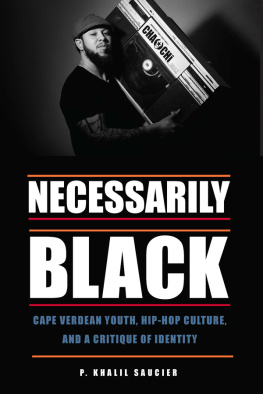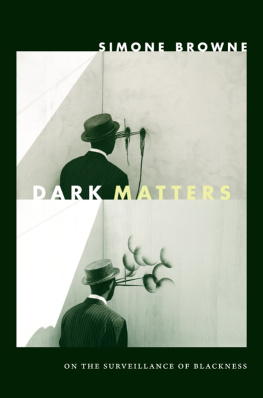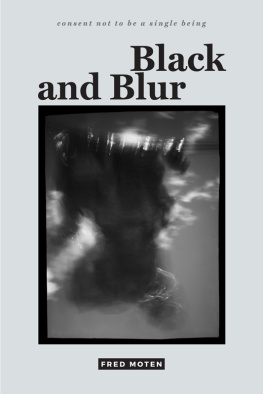Praise for CRITIQUE OF BLACK REASON
Winner of the 2015 Geschwister-Scholl-Preis
Winner of Le Prix FETKANN! de la Mmoire 2013
A captivating and simultaneously vexing mixture of historical lecture and political-philosophical manifesto.
Andreas Eckert, Frankfurter Allgemeine Zeitung
Achille Mbembe is one of those paradoxical optimists who predict the worst without ever losing their faith in the future. Admittedly, slavery has been abolished and colonialism is a thing of the past. But today new forms of alienation have arisen, the Other continues to be stigmatized, and the monster of capitalism reaches for its dream of a limitless horizon. An inevitability? Not necessarily, shoots back this thinker, who invites us to reimagine the geography of the world.
Maria Malagardis, Libration
a book that you want to shout about from the rooftops, so that all your colleagues and friends will read it. My copy, only a few months old, is stuffed with paper markers at many intervals, suggesting the richness of analysis and description on nearly every page. This is certainly one of the outstanding intellectual contributions to studies of empire, colonialism, racism, and human liberation in the last decade, perhaps decades. A brilliant book.
Elaine Coburn, Decolonization: Indigeneity, Education & Society
A lucid, thoughtful and sometimes poetic work, with phrases you want to underline on every page. Mbembe is a voice that needs to be heard in the current discussion about racism and immigration in Europe.
Peter Vermaas, NRC Handelsblad
A very demanding yet incredibly powerful book.
Augsburger Allgemeine
For me the most important African thinker today Critique of Black Reason [is] a very great book.
Jean-Marie Durand, Les inrockuptibles
Achille Mbembe has returned with a work that will surely prove provocative: Critique of Black Reason . This nod to Kants philosophical classic is, however, devilishly well-chosen since this work speaks to the never-ending tendency to place Europe at the worlds center of gravity.
Am Magazine
A JOHN HOPE FRANKLIN CENTER BOOK
CRITIQUE OF
BLACK REASON
ACHILLE MBEMBE
Translated by
LAURENT DUBOIS
Duke University Press
Durham and London
2017
2017 Duke University Press
CRITIQUE DE LA RAISON NGRE by Achille Mbembe Editions LA DCOUVERTE , Paris, France, 2013.
All rights reserved
Printed in the United States of America on acid-free paper
Cover designed by Matthew Tauch
Typeset in Arno Pro by Westchester Publishing Services
Library of Congress Cataloging-in-Publication Data
Names: Mbembe, Achille, [date] author. | Dubois, Laurent, [date] translator.
Title: Critique of black reason / Achille Mbembe ; translated by Laurent Dubois.
Other titles: Critique de la raison ngre. English
Description: Durham : Duke University Press, 2017. | A John Hope Franklin Center Book. | Originally published as Critique de la raison ngre: Paris : La Decouverte, [2013] | Includes bibliographical references and index.
Identifiers: LCCN 2016043545 (print)
LCCN 2016046043 (ebook)
ISBN 9780822363323 (hardcover : alk. paper)
ISBN 9780822363439 (pbk. : alk. paper)
ISBN 9780822373230 (ebook)
Subjects: LCSH : BlacksRace identity. | WhitesRace identity. | RacePhilosophy. | RaceSocial aspects. | Race awarenessMoral and ethical aspects. | SlaveryMoral and ethical aspects. | Racism. | Difference (Philosophy)
Classification: LCC HT 1581 . M 3313 2017 (print) | LCC HT 1581 (ebook) | DDC 305.8001dc23
LC record available at https://lccn.loc.gov/2016043545
CONTENTS
If a language is a kind of cartography, then to translate is to transform one map into another. It is a process of finding the right symbols, those that will allow new readers to navigate through a landscape. What Mbembe offers us here is a cartography in two senses: a map of a terrain sedimented by centuries of history, and an invitation to find ourselves within this terrain so that we might choose a path through itand perhaps even beyond it.
What is Black reason? Mbembes sinuous, resonant answer to that question is that it is what constitutes reason as we know itthe reason of state, the reason of capital, the reason of history. To understand the category of Blackness, one must understand the history of the modern world, its forms of conquest and exploitation, the manifold responses to its systems of oppression, the forms of resistance and voicing, the totality and its fragments. But the only way to make sense of that broader history is to begin from the category itself, from its power to condense and crystallize these broader processes. The critique offered here is one of remarkable historical and philosophical breadth. But it is also always attentive to the labyrinths and multiplicities of individual experience as shaped by social and conceptual worlds. Black is first of all a word, Mbembe writes. But the word has its own weight, its own density. There are words that wound, he notes, notably this name that was given to me by someone else. To be Black is to be stuck at the foot of a wall with no doors, thinking nonetheless that everything will open up in the end (pp. 151, 152).
With a voice that is conceptually percussive and often deeply poetic, Mbembe offers an account that is also always a theorization, sometimes puncturing what seems solid, at other times offering us vistas, openings, through a poetic evocation of possibilities unfulfilled. His voice and perspective are unique for the way he brings together African-American and Caribbean history, European imperial history, and multiple histories of Africa, notably South Africa. This is a painful story but also one that pulses with energythe energy of the actors and thinkers that have guided Mbembe through this cartography, whose ideas in turn take on new meaning as they are assembled and analyzed here through his unique vision.
This book offers a powerful and at times beautifully sardonic critique of existing discourses about Blacks and Africa. Still today, Mbembe writes, as soon as the subject of Blacks and Africa is raised, words do not necessarily represent things, and the true and the false become inextricable (p. 13). He explores the historical process through which Blackness and Africa became a concatenation of symbols and narratives, with the African continent coming to serve as the mask as well as the hollow sun. When Africa comes up, he notes, correspondence between words, images, and the thing itself matters very little. It is not necessary for the name to correspond to the thing, or for the thing to respond to its name. There has always been a remarkable freedom surrounding talk about Africa and Blackness, a total abdication of responsibility that allows people, again and again, to conveniently end up with a tale with which we are already familiar (pp. 49, 5152).
How are we to navigate through this landscape constituted largely out of deeply consequential fantasizing? Partly, as Mbembe does here, by both analyzing and puncturing the genealogy, by mapping it out but also by seeking to look at the map it has constituted for itself. Race, he writes, is image, form, surface, figure, andespeciallya structure of the imagination. And racism, a site of a rupture, of effervescence and effusion, is a way of substituting what is with something else, with another reality (p. 32). And it is, as Mbembe insists throughout the work, a force that infuses and haunts global thought, practice, and possibility in ways we must fully confront and understand if we are to move beyond.
His book seeks to lucidly account for the historical foundations for this haunting, to provide categories through which to simultaneously apprehend and unravel it. The Black Man is in effect the ghost of modernity, he writes (p. 129). That modern history is the product of a process that transforms people of African origin into living ore from which metal is extracted (p. 40). The history of the Atlantic slave trade, of the fundamental links between the creation of the plantation complex of the Americas and the constitution of modern Europe, is retold here as the foundation for the global order, and the order of thought itself. But Mbembes chronology is never a stable one, for the present is shot through with the past, and the structures of labor, migration, surveillance, and capital in our contemporary world are presented here as deeply connected with and alarmingly close to older slaving and colonial orders. And they are sustained, too, by the continuing deployment of the form of thought Mbembe seeks to analyze historically and confront philosophically and analytically.
Next page








